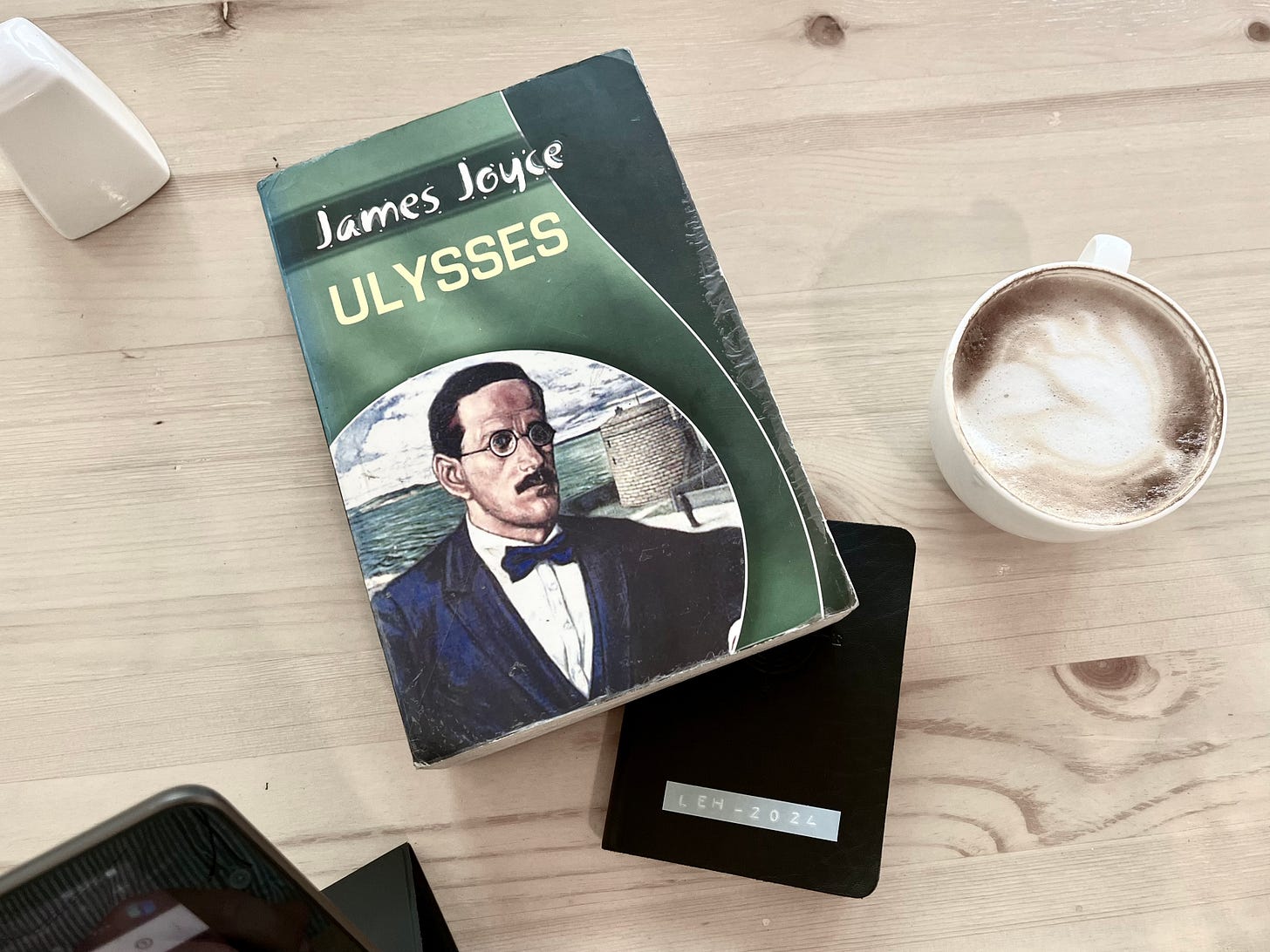Book Club #0
📍Leh, Ladakh, India (Issue 195)
“When life itself seems lunatic, who knows where madness lies?” — Don Quixote
My dear friend Hector Hughes and I are starting a reading challenge where we read one famously impossible book monthly for a year. We would like to understand why Moby Dick is so remarkable, so impenetrable, so far out at sea while also such a rewarding voyage. During this challenge we will heed Ishmael’s advice, “I try all things, I achieve what I can.” Likewise, and in time, we would like to understand how Homer’s Odyssey inspired Joyce’s Ulysses. How Thucydides led to Shakespeare, and how Shakespeare inspired Dostoyevsky.
We have been intentional in selecting books that are infamously long and incomprehensible. Books that will make us sweat and ruin our month. For example, Joyce’s Ulysses, about which a YouTuber commented, ‘I started reading Ulysses 15 years ago and am nearly one-third the way through it.. I’m 40 now, so I should get there before I die’.
The question we have asked ourselves is Why do some books survive two millennia while others fade in two months? A handful of authors, like Homer, have inspired others for 2,900 years, and yet most are scarcely read by their own editors. Worse still, today it’s easy to self-publish straight to a book-grave in some godforsaken corner of the internet where nobody will ever venture. Between 500,000 and one million books are published annually. How many are read? How many are remembered? Somehow, and I don’t know quite how, the great books remain great. They are never replaced by modern versions. Will anybody ever mutter, “Now this is the new Moby Dick—don’t bother with the previous one!” I doubt it. There must, therefore, be something essentially special about these old, complex, difficult-to-consume books. Like a vast numinous castle with a boiling moat of infamy, they are hard to get into and quite heavy to carry around, but I increasingly wonder if there is magic buried deep within their enduring stone walls.
Many books are life-changing; a tiny subset change civilisations. Some inspire and later survive whole empires. They avoid book burning and dodge banning. They are read by the generals of toppled armies, they sit on the bookshelves of fleeing Kings. Therefore, given their dramatic impact it is ironic that most canonical works are rarely read today. Certainly, I haven’t read many of them! They are simultaneously fundamental, eternal, and always the cheapest books on Amazon. Frankly, you couldn’t give away a copy of Dante’s Divine Comedy. These tomes are hardly touched and yet are frequently referenced. They are, I bet, most often used as paperweights and flower presses and draft excluders, yet they continue to define the societies which today ignore them.
These books, we hope, will change us and our relationship with the world. We hope they will reward our effort. After all, as Joyce writes in Ulysses, we spend our lives meeting ourselves, so any self-improvement is worth while. “Every life is in many days, day after day. We walk through ourselves, meeting robbers, ghosts, giants, old men, young men, wives, widows, brothers-in-love, but always meeting ourselves.” Moreover, some of these books won’t be easy. Some will be tortuous, gnarly and long and tiresome. But, as Homer wrote, “A man who has been through bitter experiences and travelled far enjoys even his sufferings after a time.” This is a literary excursion! A jaunt. An adventure.
We are sharing this challenge on our respective blogs because it’s the only way we can make it stick. We want to read the canonical works — we really do. But life very often gets in the way. Our priorities shift and life rolls on. Good ideas, once fresh, become forgotten and neglected. New projects shine damn bright. I won’t sustain this challenge unless I share the journey with you. Better still, please do join every few months, when a book interests you.
“The mystery of human existence lies not in just staying alive, but in finding something to live for.” — Brothers Karamazov
This new reading project is ‘something to live for’. It will occupy us for the next year, starting today. We also will share our thoughts on the preceding book on the first of every month. It’s a sort of book club. ‘Sort of’, because there is no fee, no administrator, no entry requirements; not even a name. This is a book club of non-members of a non-organisation, perhaps even a dis-organisation. Just books! And difficult books, at that.
You’re very welcome to join us in any month. Just email me and let me know.
The Reading List
Ulysses by James Joyce (August 24)
The Odyssey by Homer (September 24)
Moby Dick, or The Whale by Herman Melville (October 24)
Brothers Karamazov by Dostoyevsky (November 24)
The Divine Comedy by Dante Alighieri (December 24)
Don Quixote by Miguel de Cervantes (January 25)
The Origin of Species by Charles Darwin (February 25)
The History of the Peloponnesian War by Thucydides (March 25)
Hamlet by William Shakespeare (April 25)
The Canterbury Tales by Geoffrey Chaucer (May 25)
Bleak House by Charles Dickens (June 25)
*Guest Book* (July 25) — please send your canonical recommendations.
More from Hector Hughes:



